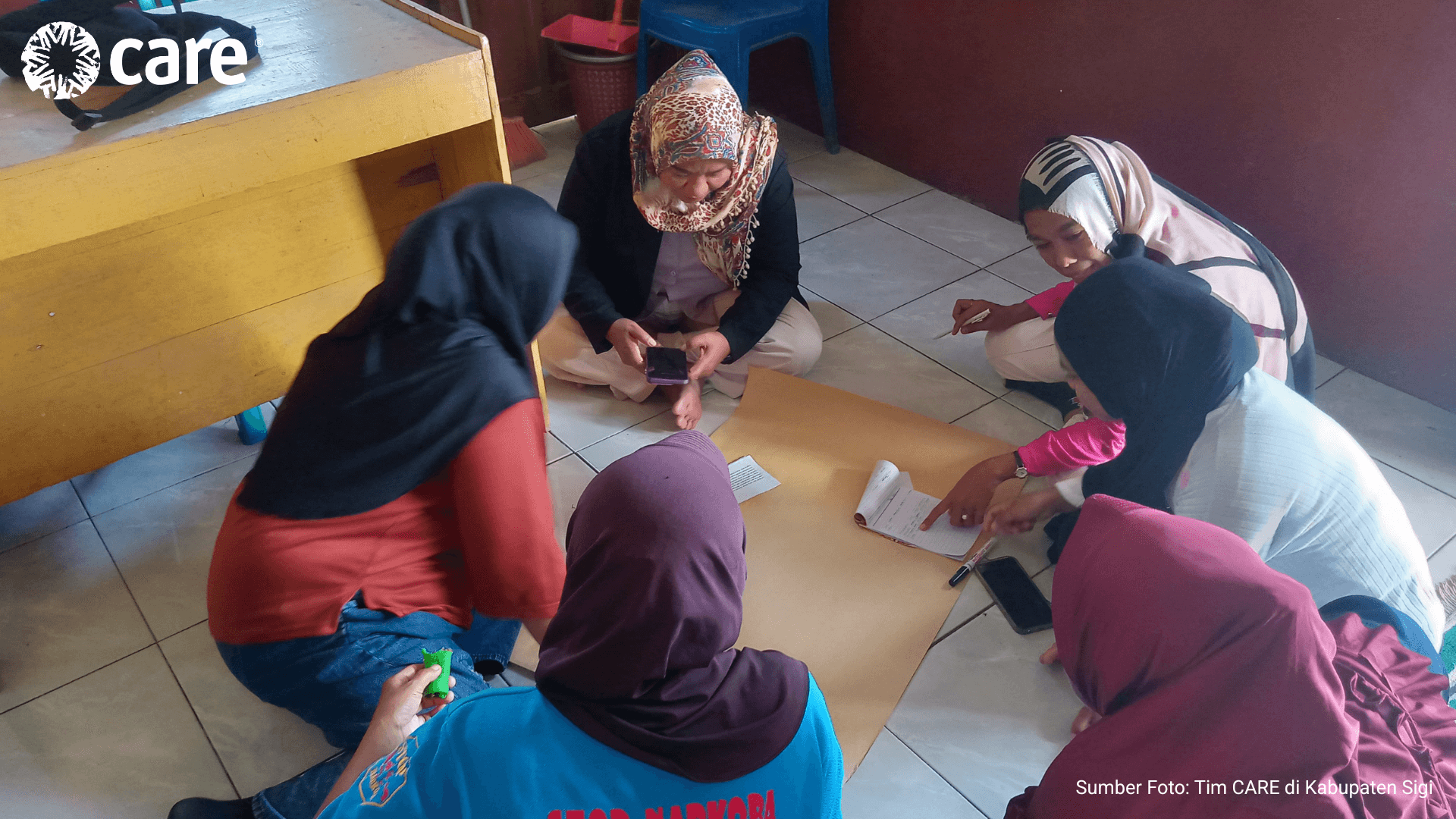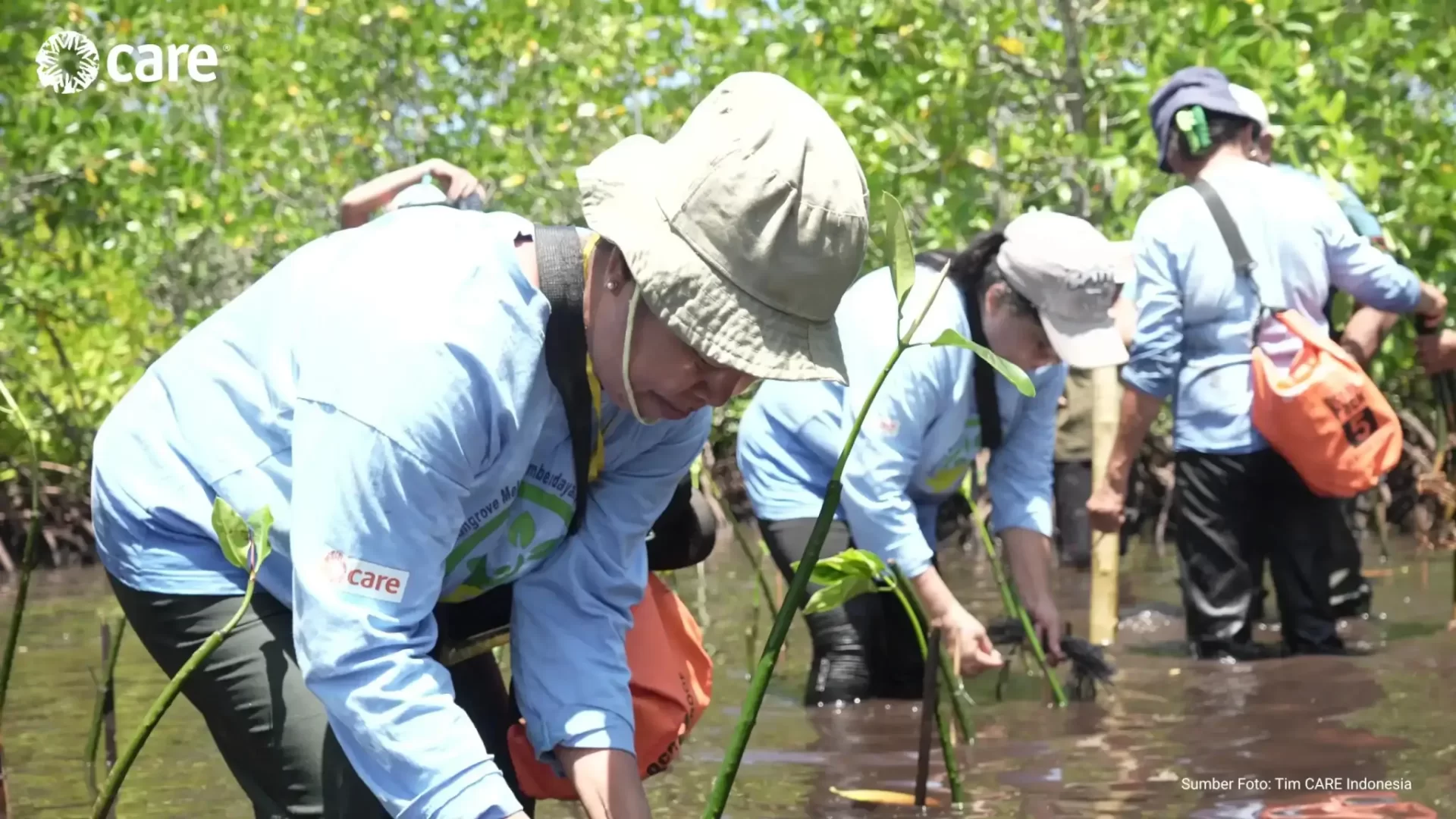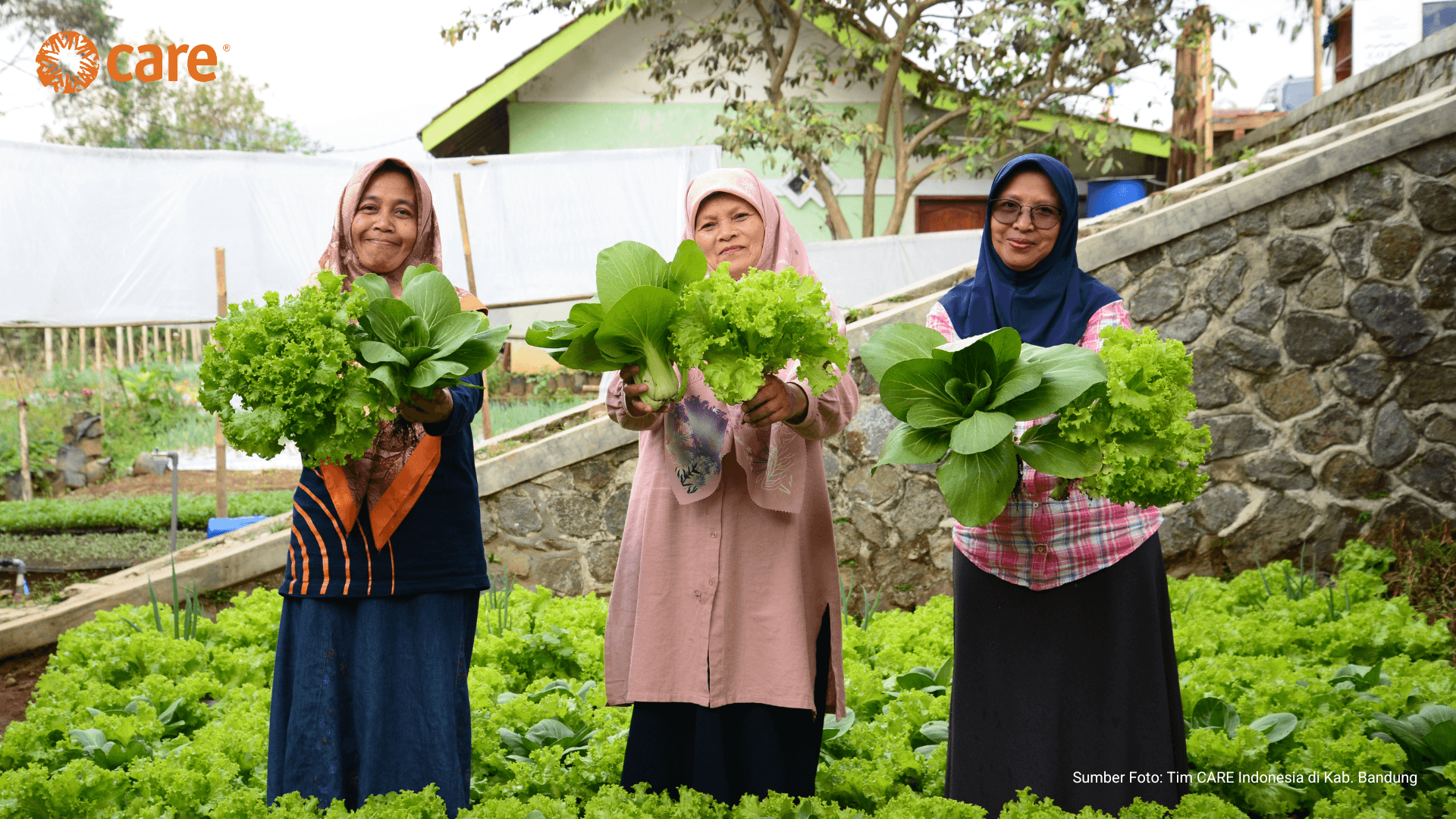Data from Indonesia’s National Disaster Management Agency (BNPB) shows that women hold great potential to be involved in crisis management across all stages, from preparedness, to response, and recovery. According to the United Nations Office for Disaster Risk Reduction (UNDRR), including women in disaster planning can improve response effectiveness by up to 30 percent. Unfortunately, the reality on the ground remains unequal. In 2022, BNPB recorded that only about 20 women were actively engaged in disaster volunteer structures at the village level. Limited experience and capacity often prevent women from gaining adequate space for participation.
Strengthening women’s capacity in disaster response has become an urgent necessity. Beyond protection, it is also a strategic measure to reduce the risks of gender-based violence (GBV), which frequently rise during crises. A UNFPA (2019) report revealed that during the Palu, Sigi, and Donggala disasters, cases of domestic violence, harassment, and attempted rape also increased. Active involvement of women is therefore key to ensuring community safety and resilience.
Women at the Frontline of Resilience
CARE Indonesia (Yayasan CARE Peduli/YCP), in collaboration with various partners and with the support of local governments, works to strengthen the resilience of women’s groups across different regions.
In Sigi District, through the establishment of Women’s Economic Business Groups (KUEP) in six villages, women have received training, business support, and opportunities to enhance their capacity. The development and strengthening of these groups not only provide additional household income, but also equip women with economic independence that has proven essential when crises strike.
Similar efforts are underway in Berakit, Bintan District, Riau Islands, and in Likupang, North Minahasa District, North Sulawesi. In these areas, women play an active role in mangrove rehabilitation, collecting seeds, planting, and monitoring growth. Today, more than 100,000 mangrove trees stand, protecting coastal areas while opening up new economic opportunities. Women’s groups also process seafood into crackers, while in Berakit, they use mangroves to create natural dye batik, proving that conservation can go hand in hand with economic empowerment.
In Musi Banyuasin District, South Sumatra, 13 KUEPs run more than 190 types of businesses, ranging from savings and loans, palm leaf handicrafts, to culinary products. This program supports palm oil plantation communities, particularly women workers, whose incomes are at risk of declining during the replanting process. By empowering women in these communities, economic resilience is sustained even during uncertain times. Through these women led initiatives, group businesses have generated a total profit of IDR 88.2 million, while savings and loan management has successfully accumulated capital of up to IDR 1.2 billion.
In West Sumbawa District, West Nusa Tenggara, 16 Women-led Business Group (KUMP) use local resources such as shellfish and fish to develop small culinary businesses that strengthen household economies. These enterprises also contribute to reducing stunting prevalence in the region. By positioning women as key actors in driving family and community economies, the program simultaneously supports children’s nutrition, household independence, and stronger social networks at the community level.
Beyond Economics
Economic empowerment is only one dimension of this work. Across KUEPs and KUMPs, women also receive training on gender equality, leadership, and disaster risk reduction. The goal is clear to build holistic resilience. With stronger capacity, women can not only sustain their families, but also lead their communities in responding to climate change and disaster risks.
The World Bank (2021) highlights that women in economically vulnerable situations face higher mortality risks during disasters due to limited access to information, resources, and social support. Conversely, when women achieve economic independence and have a voice in decision making, community resilience increases significantly. They are able to build disaster resilient microenterprise networks, manage emergency funds, and even serve as trainers or mentors for other communities.
Collaboration for a Resilient Future
None of these initiatives would be possible without collective effort. CARE Indonesia’s programs are implemented with the support of local governments, partner organizations, and community members. Cross-sector collaboration is the foundation for ensuring that women have equal access, protection, and leadership opportunities in every situation, including during crises.
When women are given the opportunity, they do more than survive they lead change. With the spirit of #ActForHumanity in this year’s commemoration of World Humanitarian Day, women now stand at the forefront, shaping disaster management systems that are more inclusive, just, and free from violence affirming that resilient communities begin with resilient women.
Writer: Kukuh Akhfad
Editor: Swiny Adestika





